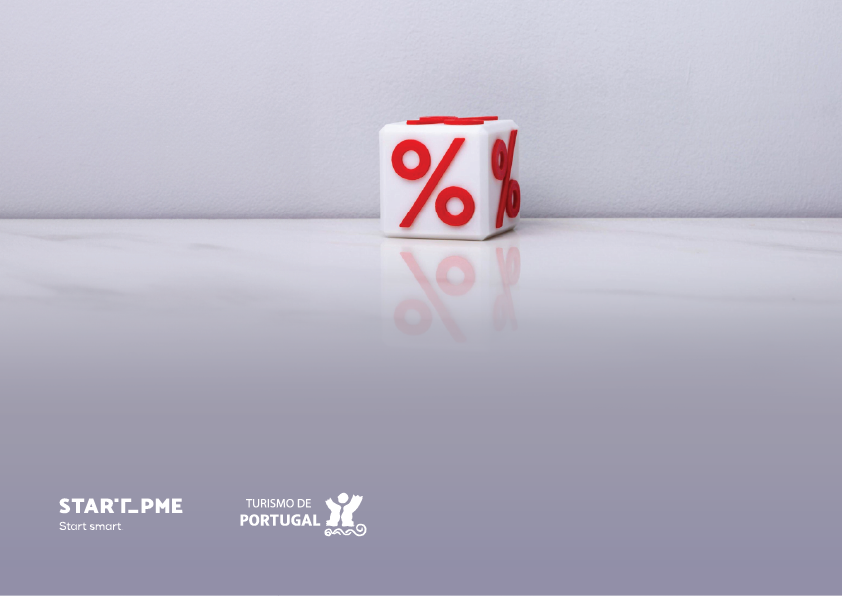Project Description

Productive Innovation – Investment Contract Scheme
Portugal 2030
Productive Innovation – Contractual Investment Scheme is a PT2030 support scheme that encourages SMEs from any sector to launch innovative projects that promote the development, diversification and internationalisation of the Portuguese economy.
Support Status
Open
Financing
Up to 75% Fund
Territory
Mainland Portugal
Eligible Entities
SMEs

Productive Innovation – Investment Contract Scheme
Portugal 2030
Productive Innovation – Contractual Investment Scheme is a PT2030 support scheme that encourages SMEs from any sector to launch innovative projects that promote the development, diversification and internationalisation of the Portuguese economy.
Support Status
Open
Financing
Up to 75% Fund
Territory
Mainland Portugal
Eligible Entities
SMEs
Incentive Conditions
- Support for individual productive investment operations in innovative activities that prove to be of special interest to the national economy due to their structuring effect on the development, diversification and internationalisation of the Portuguese economy, promoted by companies.
- Type of action:
- The creation of a new establishment or the diversification of an establishment’s activity, provided that the new activity is not the same or similar to the activity previously carried out in the establishment;
- Increasing the capacity of an existing establishment;
- The diversification of an establishment’s production into products not previously produced in the establishment;
- The fundamental alteration of the overall production process of an existing establishment.
- Mainland Portugal.
- Note: For SME operations with investments located in the Lisbon and Algarve regions, the applicant must submit an autonomous application for the investments located in each of these regions.
- 1. The financing rate for eligible expenditure, in operations under the “Productive Business Investment” operation type, with the exception of human resources training costs, is obtained from the sum of the following installments, up to a maximum limit of 75 %:
- a) Base rate: up to 30 p.p. for large companies, up to 40 p.p. for medium-sized companies and up to 50 p.p. for micro and small companies. According to the 2022-2027 regional aid map, these limits may be increased by 10 p.p. for the Alto Alentejo, Beiras and Serra da Estrela sub-regions;
- b) Bonuses:
- i) “Sectoral or territorial policy priorities”: up to 20 p.p. for operations geared towards themes of special relevance to sectoral, transversal or territorial public policies, or others to be defined in the call for applications;
- ii) “Creation of qualified employment”: up to 5 p.p. to be awarded to operations that generate qualified jobs, under the terms to be defined in the call for applications;
- iii) “SME capitalisation”: up to 5 p.p. to be awarded to operations whose private component is mainly financed by equity, under the terms to be defined in the call for applications;
- iv) “Management qualification”: up to 5 p.p. to be awarded to operations that include actions aimed at training entrepreneurs, managers or other leaders, under the terms to be defined in the call for applications.
- 2. Eligible costs for training human resources are granted an incentive calculated by applying a base rate of up to 50 per cent, which may be increased by the following, but may not in any case exceed the maximum limit of 70 per cent:
- a) By 10 p.p. if the training is given to disabled or disadvantaged workers;
- b) By 10 p.p. if the incentive is granted to medium-sized enterprises;
- c) By 20 p.p. if the incentive is granted to micro and small enterprises.
- The creation of a new establishment, or with the diversification of an establishment’s activity, on condition that the new activity is not the same or similar to the activity previously carried out in the establishment;
- Increasing the capacity of an existing establishment, which must be at least 20 per cent of the installed capacity in relation to the pre-project year. In this category, the company must increase its production capacity for goods and/or services already produced at the establishment. To demonstrate compliance with the minimum 20 per cent increase.
- The diversification of an establishment’s production into products not previously produced at the establishment, whereby the eligible costs must exceed by at least 200% the book value of the assets that are reused, as recorded in the last full tax year preceding the start of the work. In other words, the project’s eligible expenditure must represent at least 3 times the book value of the reused assets. The assets reused in the diversification project (land, buildings, machinery, equipment and other tangible and intangible fixed assets) must be identified by the company in the application, and it is permitted to use a pro-rata method to calculate them, based on the relative weight of the sales volume of the new products or another criterion as long as it is technically sustainable;
- The fundamental alteration of the overall production process of an existing establishment, and the eligible costs must exceed the amortization and depreciation of the assets associated with the process to be modernized over the course of the three full fiscal years preceding the start of the work. This type does not involve new production (goods or services), but rather a fundamental change in the overall production process.
- a. Tangible assets, including the acquisition of machinery and equipment, directly attributable costs to place them in the location and conditions necessary for their operation, as well as the acquisition of computer equipment, including the software necessary for its operation;
- b. Intangible assets, including the transfer of technology through the acquisition of national and international patent rights, licences, technical knowledge not protected by patent, and standard software or software developed specifically for a given purpose;
- c. For SMEs only – Other investment expenditure, including expenditure on engineering services; studies, diagnostics, audits; marketing plans; architectural and engineering projects and services;
- 1.Operations eligible for support must have a minimum total eligible expenditure of 25 million euros, measured on the basis of the data submitted in the application, except in the case of operations of strategic interest.
- 2.This Notice does not include the eligibility of investments with any costs incurred prior to the date of the application or aid request, including feasibility studies.
- 3.In the case of operations promoted by Large Companies, expenditure on intangible assets is limited to 50 per cent of the total eligible costs.
- 4.Other investment expenditure, as referred to in point c. of the previous section, may not exceed 20 per cent of the operation’s total eligible expenditure.
- 5.Costs for the construction of buildings, remodelling works and other constructions may not exceed the following limits:
- For operations located in the NUTS II North, Centre, Lisbon and Alentejo:
- 60% of the total eligible expenditure of the operation, in the case of operations in the tourism sector;
- 35% of the operation’s total eligible expenditure, in the case of operations in the industry sector.
- For operations located in the NUTS II Algarve:
- 70 per cent of the operation’s total eligible expenditure, in the case of operations in the industry and tourism sectors;
- 90% of the operation’s total eligible expenditure, in the case of operations in the industry sector and which contribute to the development of innovative solutions based on R&D results and the integration and convergence of new technologies and knowledge.
- For operations located in the NUTS II North, Centre, Lisbon and Alentejo:
- Companies of any nature and in any legal form.
Incentive Conditions
Support for individual productive investment operations in innovative activities that prove to be of special interest to the national economy due to their structuring effect on the development, diversification and internationalisation of the Portuguese economy, promoted by companies.
Type of action:
The creation of a new establishment or the diversification of an establishment’s activity, provided that the new activity is not the same or similar to the activity previously carried out in the establishment;
Increasing the capacity of an existing establishment;
The diversification of an establishment’s production into products not previously produced in the establishment;
The fundamental alteration of the overall production process of an existing establishment.
Note: For SME operations with investments located in the Lisbon and Algarve regions, the applicant must submit an autonomous application for the investments located in each of these regions.
a) Base rate: up to 30 p.p. for large companies, up to 40 p.p. for medium-sized companies and up to 50 p.p. for micro and small companies. According to the 2022-2027 regional aid map, these limits may be increased by 10 p.p. for the Alto Alentejo, Beiras and Serra da Estrela sub-regions;
b) Bonuses:
i) “Sectoral or territorial policy priorities”: up to 20 p.p. for operations geared towards themes of special relevance to sectoral, transversal or territorial public policies, or others to be defined in the call for applications;
ii) “Creation of qualified employment”: up to 5 p.p. to be awarded to operations that generate qualified jobs, under the terms to be defined in the call for applications;
iii) “SME capitalisation”: up to 5 p.p. to be awarded to operations whose private component is mainly financed by equity, under the terms to be defined in the call for applications;
iv) “Management qualification”: up to 5 p.p. to be awarded to operations that include actions aimed at training entrepreneurs, managers or other leaders, under the terms to be defined in the call for applications.
2. Eligible costs for training human resources are granted an incentive calculated by applying a base rate of up to 50 per cent, which may be increased by the following, but may not in any case exceed the maximum limit of 70 per cent:
a) By 10 p.p. if the training is given to disabled or disadvantaged workers;
b) By 10 p.p. if the incentive is granted to medium-sized enterprises;
c) By 20 p.p. if the incentive is granted to micro and small enterprises.
The creation of a new establishment, or with the diversification of an establishment’s activity, on condition that the new activity is not the same or similar to the activity previously carried out in the establishment;
Increasing the capacity of an existing establishment, which must be at least 20 per cent of the installed capacity in relation to the pre-project year. In this category, the company must increase its production capacity for goods and/or services already produced at the establishment. To demonstrate compliance with the minimum 20 per cent increase.
The diversification of an establishment’s production into products not previously produced at the establishment, whereby the eligible costs must exceed by at least 200% the book value of the assets that are reused, as recorded in the last full tax year preceding the start of the work. In other words, the project’s eligible expenditure must represent at least 3 times the book value of the reused assets. The assets reused in the diversification project (land, buildings, machinery, equipment and other tangible and intangible fixed assets) must be identified by the company in the application, and it is permitted to use a pro-rata method to calculate them, based on the relative weight of the sales volume of the new products or another criterion as long as it is technically sustainable;
The fundamental alteration of the overall production process of an existing establishment, and the eligible costs must exceed the amortization and depreciation of the assets associated with the process to be modernized over the course of the three full fiscal years preceding the start of the work. This type does not involve new production (goods or services), but rather a fundamental change in the overall production process.
a. Tangible assets, including the acquisition of machinery and equipment, directly attributable costs to place them in the location and conditions necessary for their operation, as well as the acquisition of computer equipment, including the software necessary for its operation;
b. Intangible assets, including the transfer of technology through the acquisition of national and international patent rights, licences, technical knowledge not protected by patent, and standard software or software developed specifically for a given purpose;
c. For SMEs only – Other investment expenditure, including expenditure on engineering services; studies, diagnostics, audits; marketing plans; architectural and engineering projects and services;
1.Operations eligible for support must have a minimum total eligible expenditure of 25 million euros, measured on the basis of the data submitted in the application, except in the case of operations of strategic interest.
2.This Notice does not include the eligibility of investments with any costs incurred prior to the date of the application or aid request, including feasibility studies.
3.In the case of operations promoted by Large Companies, expenditure on intangible assets is limited to 50 per cent of the total eligible costs.
4.Other investment expenditure, as referred to in point c. of the previous section, may not exceed 20 per cent of the operation’s total eligible expenditure.
5.Costs for the construction of buildings, remodelling works and other constructions may not exceed the following limits:
For operations located in the NUTS II North, Centre, Lisbon and Alentejo:
60% of the total eligible expenditure of the operation, in the case of operations in the tourism sector;
35% of the operation’s total eligible expenditure, in the case of operations in the industry sector.
For operations located in the NUTS II Algarve:
70 per cent of the operation’s total eligible expenditure, in the case of operations in the industry and tourism sectors;
90% of the operation’s total eligible expenditure, in the case of operations in the industry sector and which contribute to the development of innovative solutions based on R&D results and the integration and convergence of new technologies and knowledge.
Companies of any nature and in any legal form.





